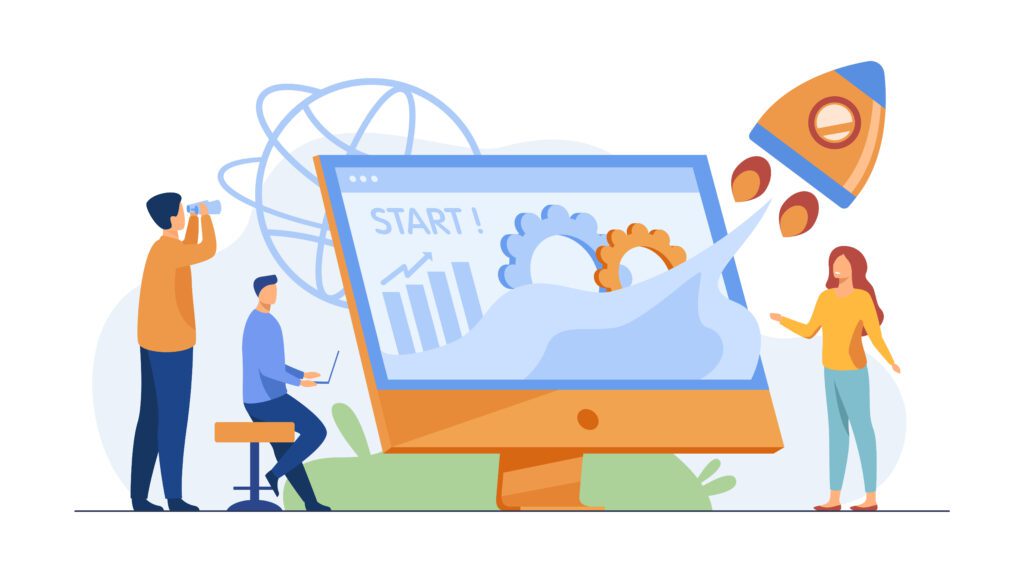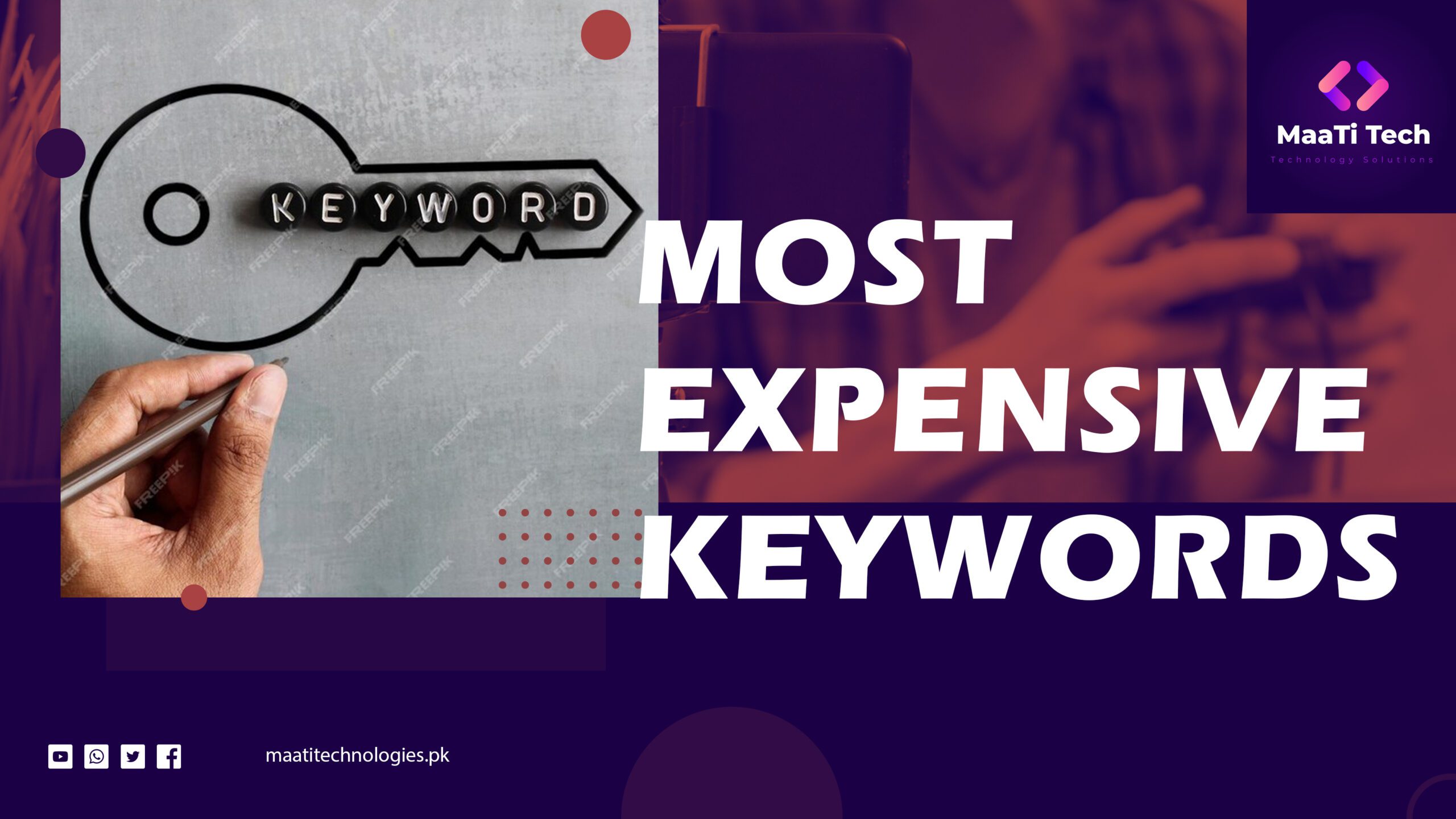Understanding the Most Expensive Keywords: Unlocking the Potential of High-Value Search Terms
In the world of digital marketing, keywords are the foundation upon which successful campaigns are built. But not all keywords are created equal. Some are so valuable that businesses are willing to pay top dollar for them. These high-value keywords drive significant revenue, attract highly motivated customers, and demand careful strategic planning. As I explore the depths of this topic, I’ll uncover the reasons behind their hefty price tags, how they can be identified, and the strategies for effectively incorporating them into your digital marketing efforts.
Table of Contents
The Economics of Expensive Keywords
High-cost keywords are the result of a competitive bidding environment where advertisers vie for visibility. In pay-per-click (PPC) advertising, particularly on platforms like Google Ads, keywords are auctioned off to the highest bidder. The more lucrative a keyword, the fiercer the competition, driving up the cost-per-click (CPC). But what drives the value of these keywords? It comes down to two key factors: search intent and customer lifetime value (CLV).
Search Intent: The Goldmine of Digital Marketing
Search intent refers to the reason behind a user’s query. When users type in a keyword, they usually have a specific goal in mind—whether it’s to learn, buy, or compare. Keywords with high commercial intent, where users are likely ready to make a purchase or invest in a service, are particularly valuable. For example, a search for “best life insurance policy” signals that the user is actively looking to make a significant financial decision, making this keyword extremely attractive to insurance companies.
Customer Lifetime Value: The Big Picture
Customer lifetime value represents the total revenue a business can expect from a customer over the duration of their relationship. Industries like finance, law, and insurance often have high CLVs, which justifies the investment in expensive keywords. For example, a law firm may be willing to pay a premium for a keyword like “personal injury lawyer” because securing just one client can lead to substantial long-term revenue.
Why Some Keywords Command a High Price

The high price of certain keywords is not arbitrary; it’s a reflection of the immense value they offer to businesses. Here are some of the reasons why these keywords command such high prices:
1. Industry Competition
Some industries are simply more competitive than others. Sectors like legal services, insurance, and finance are known for their intense competition. The stakes are high, and businesses within these industries are willing to outbid each other for the top spot on search engine results pages (SERPs). For instance, keywords like “best credit card” or “top personal injury attorney” can attract CPCs that reach into the hundreds of dollars.
2. High Conversion Rates
Keywords with high conversion rates are often worth the investment. When users search for these terms, they are more likely to complete a desired action, such as making a purchase or signing up for a service. This high likelihood of conversion makes the keyword more valuable, driving up its cost. For example, a keyword like “best home security system” is likely to attract users who are ready to buy, leading to a higher conversion rate and, consequently, a higher CPC.
3. Brand Recognition and Trust
Some businesses are willing to pay more for keywords that help establish or maintain brand recognition and trust. For instance, a well-known insurance company may bid aggressively on the keyword “best car insurance” to ensure they remain top-of-mind for potential customers. By securing the top spot for this keyword, they reinforce their brand’s authority and reliability, even if the CPC is high.
4. Geographical Targeting
Keywords that target specific locations can also be more expensive. For example, “New York City real estate attorney” is likely to be pricier than a more generic keyword like “real estate attorney.” The geographical specificity increases the relevance of the search result, making it more valuable to businesses in that area.
Identifying the Most Expensive Keywords

Finding the most expensive keywords requires a combination of research, analysis, and strategic thinking. Here’s how I approach the task:
1. Utilizing Keyword Research Tools
Tools like Google Keyword Planner, Ahrefs, and SEMrush are invaluable for identifying high-cost keywords. These platforms provide insights into keyword search volume, competition, and CPC, helping to pinpoint the most valuable search terms in your industry.
2. Analyzing Competitor Strategies
By examining the keywords your competitors are targeting, you can uncover valuable opportunities. Look at which keywords they rank for and the ads they’re running. This competitive analysis can reveal gaps in your strategy and help you identify high-value keywords that you may have overlooked.
3. Focusing on Long-Tail Keywords
While broad keywords often come with high CPCs, long-tail keywords—those that are more specific and less commonly searched—can offer high value with lower competition. For example, “best health insurance for seniors in Florida” might be a long-tail keyword with a high conversion potential, but without the astronomical CPC of a broader term like “health insurance.”
4. Monitoring Industry Trends
Industries evolve, and so do the keywords that matter. Staying attuned to changes in your industry can help you identify emerging keywords before they become mainstream. For example, as new financial products are introduced, related search terms can quickly become valuable.
Table: Schedule of High-Value Keywords Across Industries
| Industry | High-Value Keywords | Average CPC |
|---|---|---|
| Legal | “Personal injury lawyer,” “Mesothelioma lawyer” | $200+ |
| Insurance | “Car insurance quotes,” “Life insurance policy” | $70+ |
| Finance | “Best credit card,” “Mortgage rates” | $60+ |
| Health & Wellness | “Best rehab centers,” “Medical malpractice” | $50+ |
| Real Estate | “Luxury real estate agent,” “Mortgage broker” | $40+ |
| Home Services | “Pest control near me,” “HVAC repair” | $30+ |
Maximizing ROI with High-Cost Keywords

Once you’ve identified the most expensive keywords, the challenge lies in leveraging them effectively. Here’s how I approach it:
1. Crafting High-Quality Content
Content is the backbone of any successful keyword strategy. High-cost keywords deserve content that matches their value. Whether it’s blog posts, landing pages, or service pages, the content should be informative, engaging, and tailored to the specific intent behind the keyword. For example, a keyword like “best life insurance policy” could be supported by a detailed guide comparing different policy options, complete with data, expert opinions, and actionable advice.
2. Optimizing Landing Pages
Your landing pages must be optimized to convert traffic into leads or sales. This means clear calls-to-action (CTAs), relevant and persuasive copy, and a seamless user experience. For high-cost keywords, consider A/B testing different landing page elements to maximize conversion rates.
3. Implementing Strategic Bidding
Bidding on high-cost keywords requires a thoughtful approach. While it’s tempting to bid aggressively for the top spot, it’s crucial to ensure that your bids are sustainable and aligned with your overall marketing goals. Use automated bidding strategies and regularly monitor your campaign performance to make data-driven adjustments.
4. Enhancing User Experience
The user experience on your website plays a significant role in the success of your keyword strategy. High-value keywords attract highly motivated users who expect a smooth, intuitive experience. Ensure that your website is mobile-friendly, fast-loading, and easy to navigate.
5. Tracking and Analyzing Performance
Continuous monitoring and analysis are essential for optimizing your high-cost keyword strategy. Use tools like Google Analytics and Google Ads to track key metrics such as click-through rates (CTR), conversion rates, and ROI. Regularly review this data to refine your approach and ensure you’re getting the most out of your investment.
Suggested Images for the Article
- Infographic of Keyword Value: A visual representation of the factors that contribute to the value of a keyword, such as search intent, CPC, and competition.
- Comparison Chart: A side-by-side comparison of high-value keywords across different industries, highlighting their average CPCs.
- Conversion Funnel Diagram: An illustration showing how high-cost keywords move users through the conversion funnel, from awareness to decision-making.
- Industry-Specific Keyword Map: A map highlighting the top high-cost keywords in various regions and industries.
Final Thoughts
Understanding the nuances of the most expensive keywords is essential for any business looking to maximize its online revenue. These high-value keywords offer significant potential, but they require a well-crafted strategy, continuous monitoring, and a focus on delivering value to users. With the right approach, investing in these keywords can yield substantial returns, making them an integral part of your digital marketing efforts. Thanks for all.



